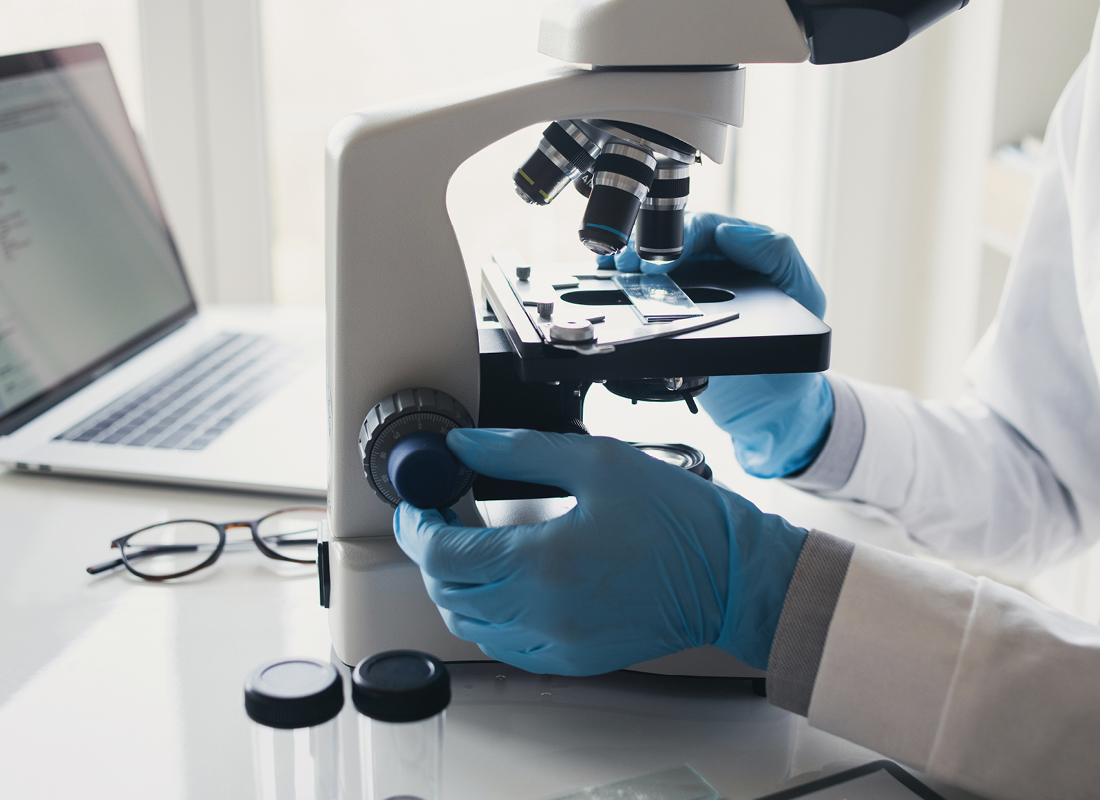Sequencing-Based Panel May Improve Evaluation of Thyroid Nodules
From - Diagnostic Testing & Emerging Technologies A genetic test panel can help patients avoid unnecessary diagnostic thyroid surgeries, according to a study published Nov. 8 in… . . . read more

A genetic test panel can help patients avoid unnecessary diagnostic thyroid surgeries, according to a study published Nov. 8 in JAMA Oncology. More than six in 10 of patients with thyroid nodules of indeterminate cytology could avoid diagnostic surgery with use of ThyroSeq, a multigene genomic classifier testing. The test not only reliably distinguishes between benign and cancerous thyroid nodules, but can also provide a detailed genetic profile of the positive nodules.
“With such a high proportion of preventable surgeries, this test should practically resolve the decades-long struggle and inefficiency of medical care for patients with indeterminate cytology thyroid nodules,” said senior author Yuri Nikiforov, M.D., Ph.D., from UPMC, in a statement. “In an era of overdiagnosis and overtreatment, ThyroSeq can improve quality of life for patients by sparing them a lifetime of synthetic thyroid medications and specialist visits, while significantly reducing health care costs.”
ThyroSeq Demonstrates Cost Effectiveness
A separate, small study published in Endocrine Practice in September showed that ThyroSeq is cost effective compared to diagnostic thyroid surgery for the evaluation of Bethesda categories III and IV nodules.
The Mayo Clinic researchers reviewed cytology and histopathology slides of Bethesda category III and IV. Costs for evaluation of eight Bethesda III nodules and 13 Bethesda IV nodules using ThyroSeq were calculated and compared to the cost of diagnostic thyroidectomy for eight Bethesda III nodules and 11 Bethesda IV nodules.
The researchers found that of those Bethesda III nodules submitted for ThyroSeq, four were positive for mutations and underwent thyroid surgery. For each category III nodule evaluated using ThryoSeq, the average cost was $14,669 versus $23,338 for diagnostic thyroid surgery. For those category III nodules requiring surgery, the cost per thyroid cancer case detected using ThryoSeq was $58,674 versus $62,233 for those detected with diagnostic thyroid surgery.
Of the Bethesda IV nodules submitted for ThyroSeq, six were positive for mutation and underwent thyroid surgery. The average costs per category IV nodule evaluated were $14,641 using ThyroSeq and $24,345 using diagnostic thyroidectomy. The cost per thyroid cancer case detected was $31,721 when using ThyroSeq compared to $53,560 for diagnostic thyroidectomy.
Larger studies of cost savings will be required to further advance coverage decisions for the test. However, the test has already received some positive coverage. In October, ThyroSeq was approved by Medicare Administrative Contractor, Novitas Solutions, for Medicare coverage. Earlier in the year, Aetna issued a positive coverage decision for ThyroSeq.
It is estimated that more than 600,000 thyroid fine needle aspiration biopsies are performed every year in the United States alone, with approximately 20 percent of these having indeterminate cytology results. A large portion of these patients undergoes surgery, but only 10 percent to 30 percent of these thyroid nodules are actually malignant. If a test could reliably diagnose these nodules as benign, diagnostic surgery could be avoided. Additionally, among nodules that are indeterminate, but suspicious for malignancy, a more precise assessment could inform the extent of surgery necessary.
The current study assessed use of the ThryoSeq test in patients from 10 medical centers. Ultimately, 256 patients (79 percent female; n = 286 nodules) with surgical follow-up data were eligible. Pathology review was performed on 274 nodules. Samples from indeterminate nodules (Bethesda III, n= 172; Bethesda IV, n= 101; and Bethesda V, n = 13) were shipped to the University of Pittsburgh Medical Center (UPMC) for ThroSeq testing.
The ThyroSeq Genomic Classifier test is offered in joint partnership between UPMC and CBLPath, a Sonic Healthcare company. The next-generation sequencing-based test assesses alterations (point mutations, gene fusions, and copy number and gene expression alterations) in 112 genes linked to thyroid cancer. A genetic classifier score is calculated based on the sum of individual values of all detected alterations. A score of 0 or 1 is deemed a negative test (a score of 1 is commercially reported as currently negative) and scores of 2 and above are considered positive.
The researchers found that based on the 257 nodules with samples adequate for molecular analysis, 59 percent were negative and 41 percent were positive. For all Bethesda III and IV nodules, the ThyroSeq had a sensitivity of 94 percent and 82 percent specificity. With a cancer/noninvasive follicular thyroid neoplasm with papillary-like nuclear features (NIFTP) prevalence of 28 percent, the negative predictive value (NPV) of ThryoSeq was 97 percent and the positive predictive value (PPV) was 66 percent. The authors say that the 3 percent false-negative rate was similar to that of benign cytology. Further, the missed cancers were all low-risk tumors.
“Prospective studies will be needed to determine whether patients with the molecular signature of low-risk cancer or NIFTP can have surgery safely delayed or replaced by medical surveillance, as is currently under consideration for small thyroid cancers,” write the authors led by David L. Steward, M.D., from University of Cincinnati Medical Center in Ohio.
Takeaway: ThyroSeq is showing evidence of being an effective, cost-effective strategy for evaluation of potentially cancerous thyroid nodules with indeterminate cytology.
Subscribe to Clinical Diagnostics Insider to view
Start a Free Trial for immediate access to this article